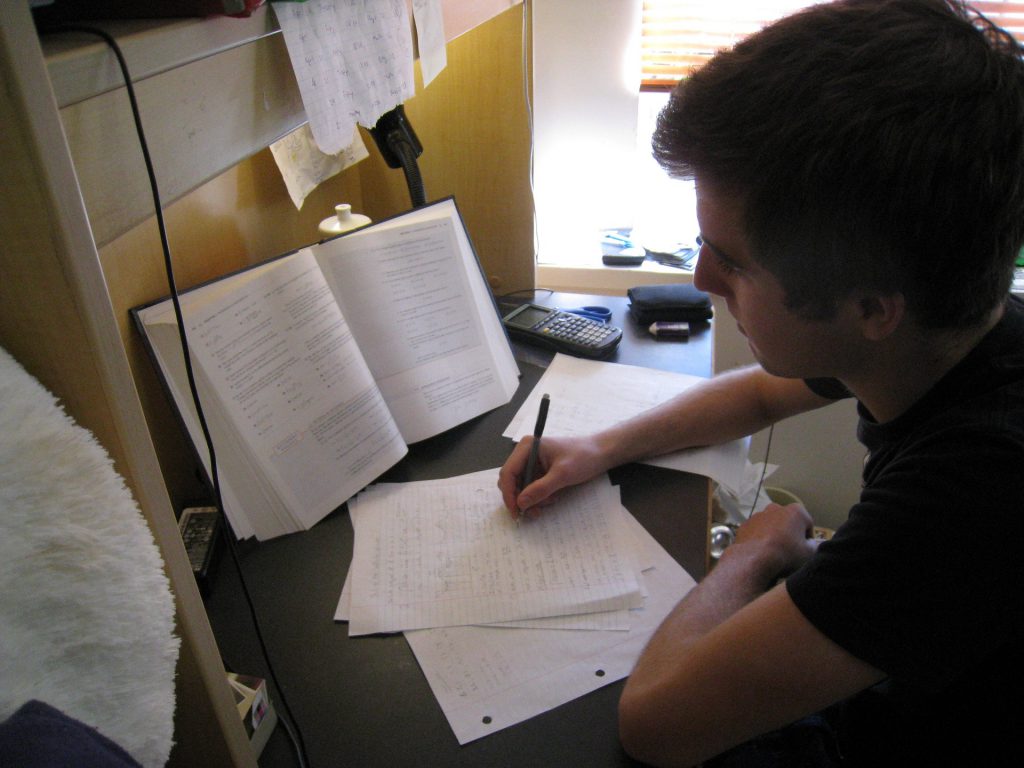Habit – the bit that remains
As the current year approaches the end and a New Year begins with great hopes, it also brings along with it a shortened deadline (45 to 60 days) for the Final Exam. The beauty of life is in balance, on one hand we want to celebrate the New Year with zest and zeal and on the other hand start preparing for the inevitable test of the year – the Final Exam.
For students who are worried and anxious about their exam preparation, here are some tried and tested tips that I have shared with my students over the last two decades. These tips have worked in my own life and have worked with my students too. The secret of success is to make success a habit – from small things we do in life every day leading to the Final Exam.
- The first and foremost thing is to have a simple achievable goal. For discussion’s sake, let us consider the goal to be securing an A+ grade in the exam.
- Once the goal is fixed, look at the syllabus to be completed. Analyse which chapters you know well and which ones you need to study extra.
- Develop the habit of studying at a given time and a given place, this helps in setting the mind to focus on the work to be done.
- Commit to a unit of work or a unit of time and complete it with focus. E.g.: Do not get up from the table until you complete one chapter, or have studied for one hour
- Create a study time table and stick to it.
- Reading the text book is not studying – make notes, make mind-maps, make lists of formulae
- Test yourself by solving short questions after every study session and sample question papers for practice
If you ask any student how they are studying, there is usually a one-word answer. Good or great or sometimes a dragging “Okay”. But what they are really doing is spending unproductive time in front of their books. The visual is so convincing that parents see kids spend hours in front of the book but when it comes to the exam results they have scored less than the “SEEN” effort.
Parents, if you want to know whether your child is studying productively, look for these signs:
- Time table and study plan are displayed on the wall with tick marks as the plan progresses
- Following study techniques – Making notes as they study
- Revising what they have studied – Mind Maps and other memory aids
- Creating ready-reckoners – List of formulae
- Assessing their work – Q & A, sample exam papers – you could be involved in this step by mutual agreement
Teenagers usually have creative ways of learning that they feel are unique to them or they are imitating their inspiration (friends or someone they look up to). Look for repetitive patterns in their learning style.
If you don’t spot any of the above, then it is time to talk to them about taking steps towards effective studying. True, all the signs may not be exhibited, however developing a structured approach through habits is important. If your child has not developed habits of structured learning, it is necessary to get them some training. Look out for the Effective Study Techniques workshops conducted at your nearest NumberNagar® Centre.
Featured Image Credits: janeb13/pixabay/CC0-Creative Commons
Sriraghavan S M
Latest posts by Sriraghavan S M (see all)
- Why self-directed learning is the need of the hour - 2 July 2021
- Discovering my teaching method - 8 January 2021
- Finding Balance - 23 October 2020
- A case for Alternative Learning - 9 October 2020
- Why I am a teacher - 4 September 2020

